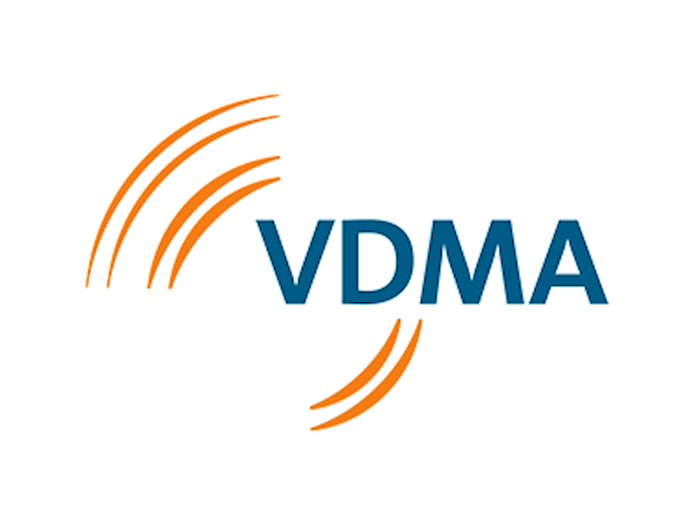Semiconductors play a key role for industrial products. Europe therefore has chip production in its strategic focus. A VDMA study shows that this presents both opportunities and challenges for mechanical engineering.
Categories
Semiconductors play a key role for industrial products. Europe therefore has chip production in its strategic focus. A VDMA study shows that this presents both opportunities and challenges for mechanical engineering.

Categories
Tags
Contact info
Silicon Saxony
Marketing, Kommunikation und Öffentlichkeitsarbeit
Manfred-von-Ardenne-Ring 20 F
Fax: +49 351 8925 889
Contact person:

Semiconductors are at the heart of a modern industrial society and are just as important for everyday products as for all industrial processes. A secure supply of the chips needed in each case is therefore essential for survival – also for mechanical and plant engineering. At the same time, the semiconductor growth market offers great business opportunities for the equipment industry. Every new chip factory has to be equipped with high-tech production facilities. The EU’s goal of reducing dependency on Asia in particular for semiconductor production and supply is therefore consistent and correct. “Europe must now catch up in the manufacture of semiconductors and, to this end, make targeted investments in the establishment of a suitable value chain,” demands Hartmut Rauen, Deputy Managing Director of the VDMA. “We need competitive and resilient European structures in this field in the long term. And these will only emerge if we succeed in supporting the semiconductor industry’s value chains with highly innovative mechanical engineering companies.” This involves the semiconductor mass market, “Priority is given to investments in the production of larger chip structures of more than 28 nanometers, which the industry needs for sensors or power semiconductors, for example,” explains Rauen.
On behalf of the VDMA, the Fraunhofer Institute for Manufacturing Engineering and Automation IPA has examined the development of the European semiconductor market up to 2030 and derived recommendations for action for both companies and politicians. “Targeted support for research, development and production is the only way to ensure that mechanical and plant engineering can meet the challenges of the future and further consolidate its position as one of the mainstays of the European economy,” sums up Dr. Udo Gommel, author of the study “The Chip Shortage – Challenges and Opportunities for Mechanical and Plant Engineering in Europe.” Better training and promotion of skilled workers, increased cooperation between companies and universities, and new international partnerships would also be urgently needed. “Europe is in a marathon here. The best framework conditions and the development of highly qualified personnel are therefore the most important maxims,” adds Hartmut Rauen.
Deficits above all in the area of “advanced packaging”
Because currently only just under 400 companies in Europe are directly or indirectly involved in the manufacture of semiconductors, of which around 50 are from the mechanical and plant engineering sector and just under 130 are component manufacturers. This means that by no means all stages of the chip value chain can be adequately represented. Europe has a lot of catching up to do, particularly in the area of advanced packaging, i.e. the combination of different process steps in semiconductor manufacture in a single system. “One-sided dependencies, as they have developed in recent decades, must therefore be broken up and mutually shaped. In this context, it is first necessary to perceive and specifically strengthen the strengths of the EU states in the semiconductor value chain in the areas of research and development, chip design, as well as machine and plant engineering and component manufacturing,” the study states.
Companies must adjust to recurring shortages
As a customer of chip manufacturers, the mostly medium-sized machine and plant engineering companies are also having a hard time on the global market. This is because the global supply chains for semiconductors are not transparent and procurement often has to take place via the gray market at inflated prices. Better global recording of chip availabilities would therefore be urgently needed to identify artificial shortages more quickly. “A first approach to this is the intensive use of the semiconductor warning system established by the European Union, which offers all semiconductor-related players the opportunity to react to even the smallest signs of shortages or disruptions in the supply chain,” the study says.
But companies themselves would also do well to prepare for recurring chip shortages. At the top of the agenda should therefore be the resolution to achieve more independence in procurement, for example by qualifying second and third-party suppliers. Just-in-time deliveries can be avoided or at least supplemented by building up safety stocks. The aim must also be to achieve better transparency throughout the company’s own supply chain and to create new, attractive jobs for specialists in order to make better use of innovation capacities.
– – – –
👉 www.vdma.org
👉 Short version of the study “The Chip Shortage – Challenges and Opportunities for Machinery and Plant Manufacturing in Europe”
Photo: pixabay